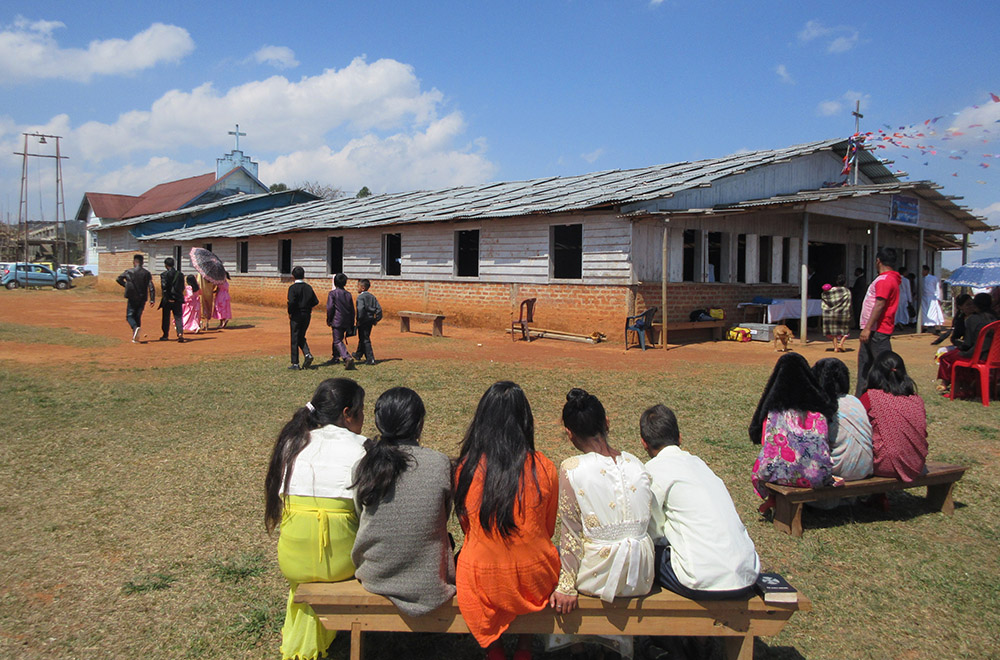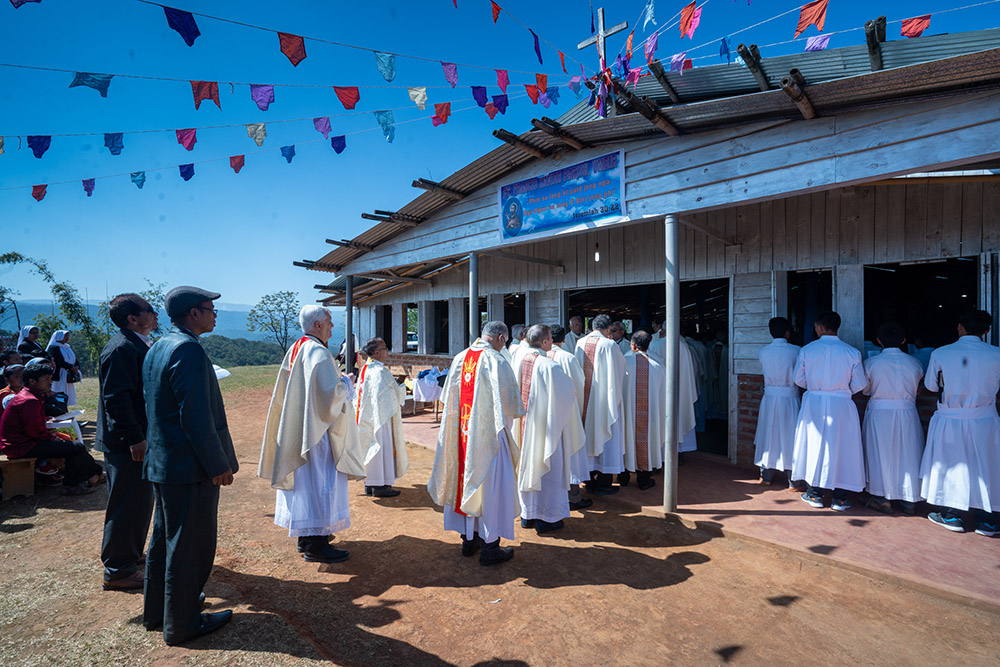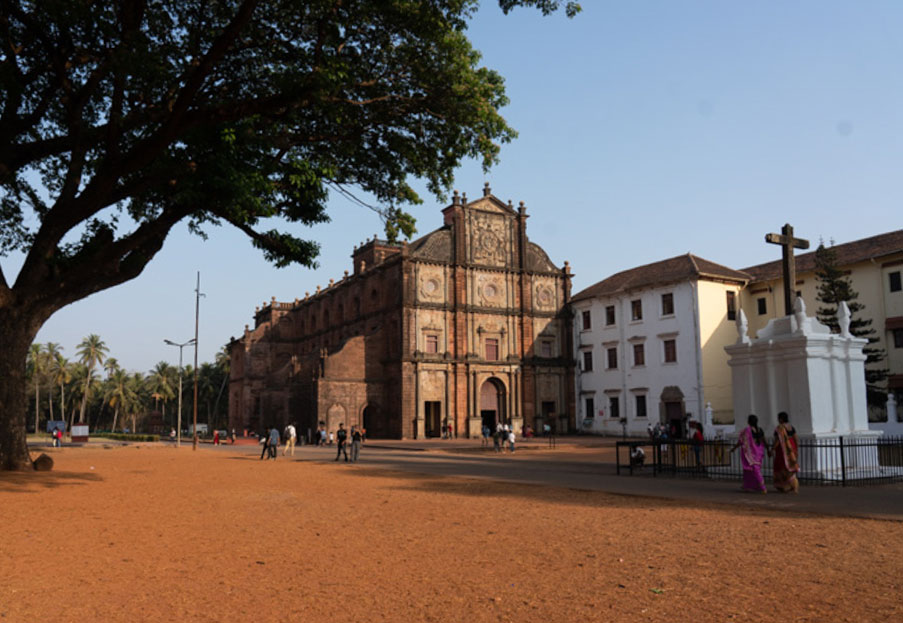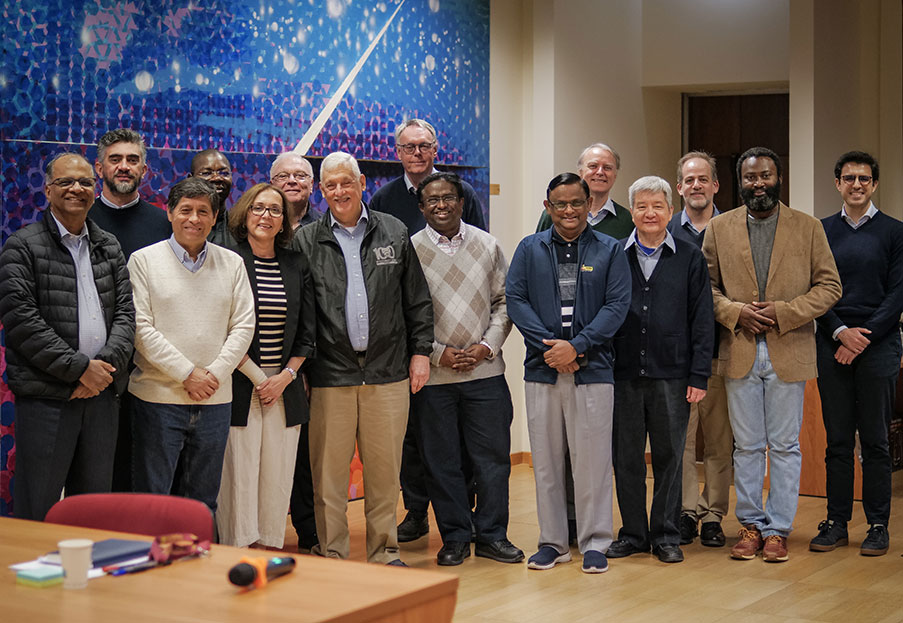The Khasi tribe, a matrilineal society
In 1995 the Society of Jesus published decree 14 of General Congregation 34. Entitled, "The Jesuits and the situation of women in the Church and civil society", the document caught the attention of both the media and voices within the Church. Within the document, the delegates of GC 34 invited Jesuits, Jesuit works and Jesuit partners to dramatically increase the attention being paid to women and women's issues, work for gender equality, fight violence against women, and to promote leadership roles for women in the decision-making bodies of Jesuit institutions and apostolates.
This expression of solidarity with women has not been short-lived. The Society of Jesus - and the Jesuits overall - have been faithful in promoting women's rights. With a long involvement in both the social and intellectual ministries, the current Superior General, Fr. Arturo Sosa, has been carrying this concern as a core theme of his visitations to Jesuit works around the world. His visit to St. Xavier Parish in Umbir, gave him the opportunity to highlight this commitment by recognizing the important role that women play in the Church.

The parish, located in the western portion of Kohima, is in a region in which a large portion of the population belongs to the indigenous Khasi tribe. After the Eucharist, during the presentation of a cultural program, Father General had the opportunity to speak. He started by emphasizing the richness of the indigenous peoples and the respect that is due to their traditions. But he also had the opportunity to underline the primordial role of women in that society...
“In the past four days I have been visiting the various Jesuit centres of Kohima Region and meeting with the diverse cultures of Northeast India. Today, at the end of my short visit, I deem it a joy and a privilege to spend this time with you, Khasi people, encountering one more culture, so unique with your own rich symbols and myths, traditions and values. (...) Today I want to recall with gratitude the special favour God has shown towards the Khasis of Meghalaya, who have received the Gospel and embraced the Christian faith much before the other States and tribes of North-East India.

Speaking about tribal and indigenous peoples, Pope Francis says ‘Today we are more aware of the significance of the richness of the indigenous peoples, especially when, both politically and culturally, other forces tend to suppress them even more through globalization … where everything becomes standardized. Today, our prophetic audacity, our consciousness, must be on the side of inculturation ... Otherwise, it is homogenizing and destructive. ... We have to interpret things differently, valuing each people, their culture, their language.’ (GC-36 on 24 Oct 2016)
I am told that Khasis, like other matrilineal tribes of Meghalaya, recognise the special role of women in the family and in society. Pope Francis and the recent synods of Bishops have emphasised the importance of giving women their proper place in the Church’s life and administration. In fact, Catholic women all over the world, especially women religious and women’s societies, are doing so much silent work for evangelisation in all its aspects: faith formation and liturgy, education and health care, social service and nurturing families. Your good customary law that gives importance to women, effectively integrated into the Church’s life and governance, can show the way.”







